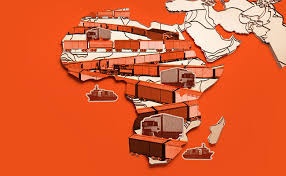The latest trade statistics from the South African Revenue Service (SARS), released on 30 September 2025, reflect both strength and vulnerability in South Africa’s economic landscape. Despite recording a R4.0 billion trade surplus, exports fell by 6.8% while imports grew by 1.9%, highlighting the fragility of the current trade balance. The decline in major export commodities such as gold, aluminium, and diamonds, alongside an increase in imports of high-tech goods like aircraft and data-processing equipment, underscores the country’s heavy reliance on imported technology and capital goods.
Compounding these economic challenges are global trade tensions driven by the return of Donald Trump’s conservative Republicanism, which has reignited protectionist policies and raised tariffs on several economies, including South Africa. These measures have eroded the competitiveness of South African exports—particularly in the automotive sector, which employs over 100,000 workers and forms a cornerstone of the country’s manufacturing base. The uncertainty surrounding the renewal of the African Growth and Opportunity Act (AGOA), set to expire on 30 September 2025, has further dampened investor confidence. AGOA has long been a symbol of post-apartheid goodwill and industrial cooperation with the U.S.; its potential lapse poses significant risks to export-led growth and industrial employment.
In response, Minister Parks Tau, South Africa’s Minister of Trade, Industry, and Competition, has intensified diplomatic engagement with U.S. counterparts to preserve access to the American market while exploring new partnerships. The article calls for urgent industrial realignment, emphasizing collaboration with Chinese automakers to localize production, enhance value addition, and establish South Africa as a manufacturing hub for the African market. The piece also highlights the need for a collective strategy involving government, Original Equipment Manufacturers (OEMs), and BRICS partners to safeguard the nation’s industrial resilience and trade stability.
 Potential Benefits to African Trade: While the challenges are acute, the current trade climate also presents strategic opportunities for South Africa and the broader African continent. If South Africa successfully transitions from a predominantly import-driven model to one anchored in localized production and regional value chain integration, it could stimulate industrial growth across the continent. Partnerships with China and BRICS nations can accelerate technology transfer, industrial capacity building, and job creation—pillars that align with the African Continental Free Trade Area (AfCFTA) objectives of expanding intra-African trade and reducing external dependency.
Potential Benefits to African Trade: While the challenges are acute, the current trade climate also presents strategic opportunities for South Africa and the broader African continent. If South Africa successfully transitions from a predominantly import-driven model to one anchored in localized production and regional value chain integration, it could stimulate industrial growth across the continent. Partnerships with China and BRICS nations can accelerate technology transfer, industrial capacity building, and job creation—pillars that align with the African Continental Free Trade Area (AfCFTA) objectives of expanding intra-African trade and reducing external dependency.Moreover, South Africa’s efforts to diversify its trade relations and strengthen its automotive and manufacturing sectors could serve as a blueprint for other African economies seeking resilience amid global volatility. By leveraging AfCFTA, the region can establish a continental manufacturing and export network, promoting cross-border supply chains, and enhancing Africa’s collective bargaining power in global trade. The restructuring of South Africa’s industrial policy toward localization and value addition could thus catalyze wider economic transformation and trade inclusivity across Africa, turning current vulnerabilities into long-term growth prospects.
